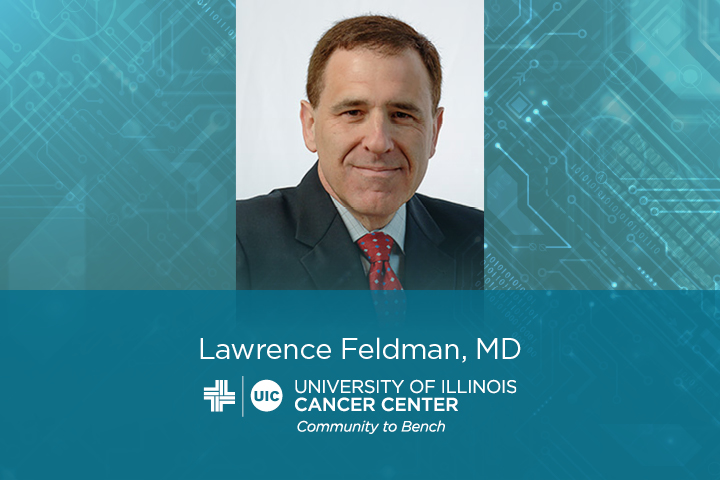
Nearly 22% of cancer-related deaths are attributed to lung cancer, the leading cause of cancer mortality in the United States. Lacking symptoms in its early phases, the disease, which is expected to take the lives of more than 135,000 men and women this year, is diagnosed at an advanced, incurable stage. Lung cancer is prevalent in the military, as between 24% to 38% of personnel smoke; tobacco is a major cause of the disease. An estimated 900,000 military veterans remain at risk of contracting lung cancer due to age, smoking and other environmental exposures during and after their service.
Over the past five years, 984 military veterans, 566 whom were Black, have been treated for lung cancer at Chicago’s Jesse Brown Veterans Administration Medical Center. To address life-threatening, unmet medical needs of Midwest veterans, the VA’s Office of Research & Development has awarded the JBVAMC a new $4.5 million grant for the VA’s National Lung Precision Oncology Program (LPOP).
The comprehensive, collaborative five-year grant will be administered by research teams at the University of Illinois Cancer Center and the Robert H. Lurie Comprehensive Cancer Center of Northwestern University. Dr. Lawrence Feldman, professor of clinical medicine in the University of Illinois College of Medicine’s Division of Hematology and Oncology and member of the University of Illinois Cancer Center’s Translational Oncology program, will serve as principal investigator, along with Dr. Hidayatullah Munshi, professor of medicine in the Division of Hematology and Oncology at Northwestern University Feinberg School of Medicine.
As part of the VA’s goal to develop a System of Excellence for Precision Oncology, LPOP Hub sites – the JBVAMC is one of 17 in the U.S. – will form an integrated national network to serve as Centers of Expertise in lung cancer screening and precision oncology. The Hubs will partner with Spoke sites – the JBVAMC has three – to ensure that veterans have access to the same state-of-the-art lung cancer care and clinical trials, regardless of location. The three Spoke sites are located at the Captain James A. Lovell Federal Health Care Center (LFHCC) in North Chicago, Ill., along with one in Milwaukee and the third in Madison, Wis.
“Our goal for the program is to establish community outreach and resource navigation for veterans who are at high risk for lung cancer, educate primary care providers at the Jesse Brown VA and the Spoke sites about the process of lung cancer screening, and provide access to veterans to cutting-edge research and precision oncology-based lung cancer clinical trials at the four sites,” Feldman said. “I believe this grant is a huge opportunity, and will allow us to strengthen clinical and translational research and collaboration between the University of Illinois Cancer Center and the Jesse Brown VA Medical Center.”
Of the 984 veterans treated for lung cancer at JBVAMC over the past five years, 37 were female. Veterans between the ages of 55 and 85 accounted for almost 90% of lung cancers treated at the facility. Lung cancer has been the second most commonly diagnosed cancer at the JBVAMC from 2014-2018, second only to prostate cancer.
Established in 2016, the VA’s Lung Precision Oncology Program is used by nearly all VA oncology practices and have now sequenced more than 13,000 samples. In precision oncology, physicians take samples of tumors or blood and sequence a patient’s tumor DNA. They can then identify genes known to play a role in cancer and find specific mutations that are causing the cancer to grow. This allows the patient to benefit from drugs and other therapies that are targeted specifically to those mutations.
The VA is the largest integrated health care system in the U.S. About 50,000 new cancers are diagnosed each year at the medical facility, which provides care to more than 400,000 veterans with cancer. The heterogeneity of molecular testing practice patterns and methods of testing at VA health care facilities, and the increasing number and complexity of molecular tests led to the development of the national program for precision oncology.
In addition to Feldman and Munshi, the LPOP for Midwest Veterans multidisciplinary team includes Dr. Israel Rubinstein, University of Illinois College of Medicine, Dr. Nisha Mohindra, Lurie Cancer Center, and Dr. Mukta Pant-Purohit, Lovell Federal Health Care Center.
